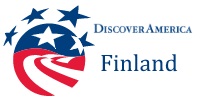Chicago-based United Airlines became the latest North American carrier to raise checked bag fees, as airlines contend with lower revenues amid climbing prices for jet fuel.
United announced Aug. 31 it had raised fees for checking a first bag from $25 to $30 and for a second bag from $35 to $40. The new rules cover all flights in North and Central America, as well as the Caribbean.
The decision follows recent moves by New York-based JetBlue Airways, as well as Air Canada and Calgary-based WestJet—Canada’s two largest airlines—to increase baggage fees. Dallas-based Southwest Airlines, on the other hand, has bucked the trend by sticking to its longstanding policy of allowing two free checked bags per traveler.
United will also begin charging passengers without elite status for seats nearer to the front of the aircraft later this year. Most airlines raising fees for checked luggage still offer free bags for their more expensive tiers, as well as for travelers with airline credit cards.
The shift toward ancillary fees comes against a less-profitable backdrop for airlines. Pre-tax profit margins for major US commercial carriers fell to 7.2% in 1H from 11.5% during the year-ago period, as fuel expenses increased 31%, airport expenses rose 7.1% and labor costs grew 5.7%, according to data released earlier this week by Washington, DC-based lobbying group Airlines for America.
US airlines collected $4.6 billion from baggage fees in 2017, according to data from the US Department of Transportation—roughly 2.6% of total operating revenue. That figure dwarfs the $464 million in baggage fees airlines collected in 2007, before they began lifting the fees to boost revenue when fuel prices began rising in 2008.
Defenders of the rate increases claim they have led to dramatically improved baggage handling performance over the last decade. The mishandled baggage rate was 2.59 per 1,000 passengers for May 2018, down from 5.93 per 1,000 travelers in May 2007. Without baggage fees, airfare for all passengers would increase, as airlines would have to factor in the cost of carrying checked bags into base fares, according to industry insiders.
The move by US carriers to charge more for baggage fees, as well as cancellation, change and other ancillary fees, has caught the attention of some US lawmakers. Last year, Sens. Edward Markey (D-Massachusetts) and Richard Blumenthal (D-Connecticut) introduced the Forbidding Airlines from Imposing Ridiculous (FAIR) Fees Act, which would prohibit airlines from imposing cancellation, change and bag fees that are not “reasonable and proportional to the costs of the service provided.”
That provision was included in the Senate’s version of the upcoming bill to reauthorize the FAA, although industry insiders believe the rule would be significantly weakened in any final legislation agreed to by the House, and the FAA bill now appears unlikely to make it through Congress before the agency’s current authorization expires on Sept. 30.
Ben Goldstein, Ben.Goldstein@aviationweek.com

